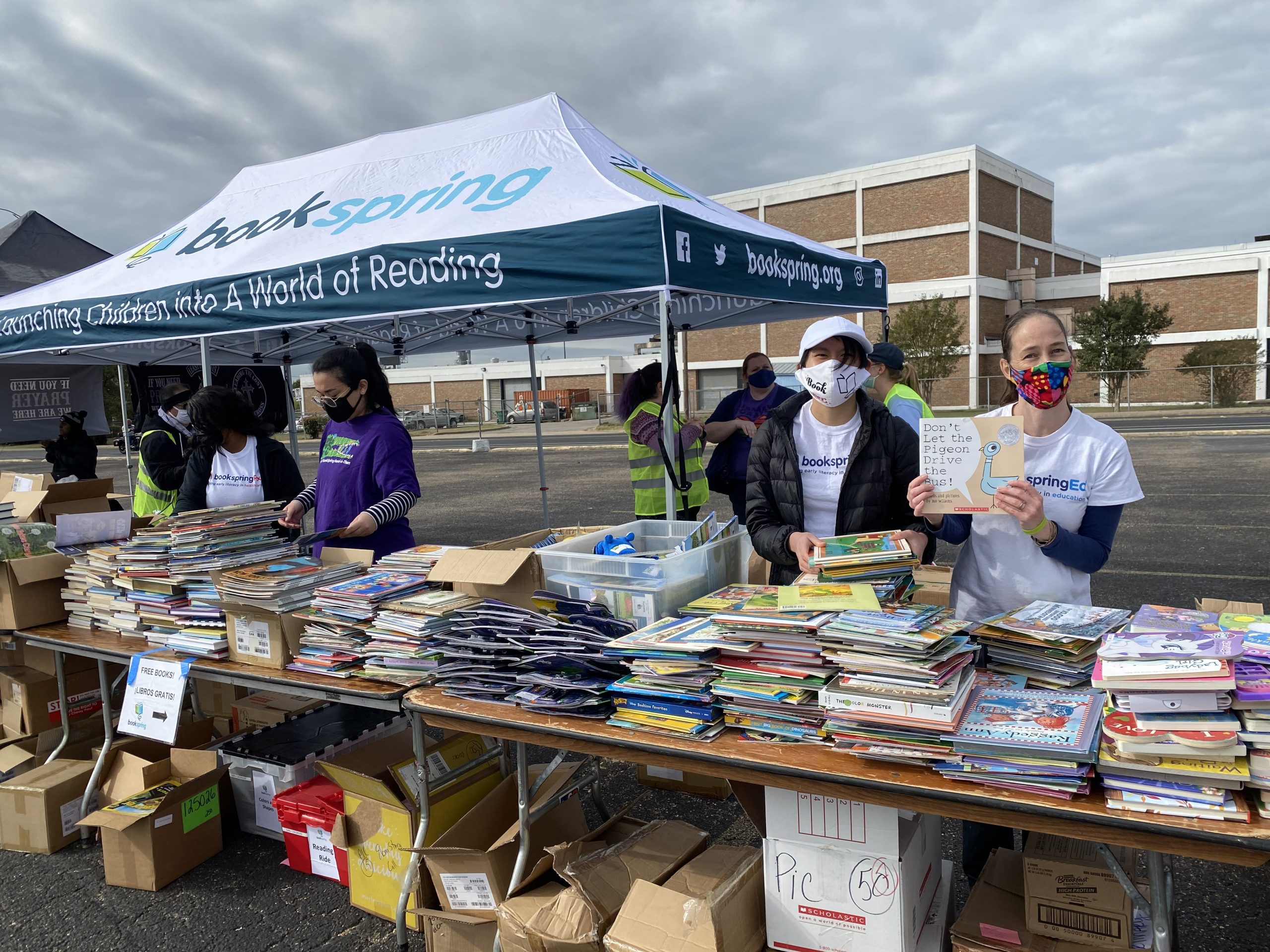By Jayme Carrico
Studies have found a child’s access to books plays a significant role in early childhood literacy. One recent study found that providing access to books, book giveaway programs encourage reading time between parents and children, increase a child’s overall interest in reading, and advances a child’s early literacy and language skills.
Access to Books Encourages Reading
Parents of young children often face time constraints and are more likely to make quick decisions based on environmental factors. If a parent has easy access to age-appropriate books for their children, they are more likely to choose reading as an activity.
Parent-child reading time is crucial. According to literacy research, parents provide the most language input when reading to their children. Therefore, a child is more likely to develop language skills from reading with a parent than any other parent-child activity such as playing or eating together.
Children are often just as likely as parents to make decisions based on their environment. With books in the home, a child could easily choose reading a book over playing with toys or watching a show.
Bridging the Gap with Book Giveaway Programs
Researchers have found that the type of books available to the child, not just the quantity, is also an important factor in overall literacy development. Books on various topics, such as numbers, language, history, and fiction, all contribute to a well-rounded home literacy environment. Thus, book giveaway programs enable parents to provide both a higher quantity and quality of books to their children.
Additionally, these programs can also start a “snowball effect” where the mere presence of books in the home can encourage children to choose to read voluntarily. Frequent reading advances a child’s literacy skills and presumably further increases the child’s interest in reading. The study concludes by restating the important role book giveaway programs play in this cycle. A free book can be just the nudge a child needs to begin a life-long love of reading.
Over 44 Studies Provide Hard Evidence
Book giveaway programs that provide free books to families with infants can be effective in promoting children’s literacy development, according to a 2020 meta-analysis of 44 studies by researchers Merel de Bondt, Ingrid Willenberg, and Adriana Bus. The research, which was published in the journal Review of Educational Research, analyzed three major book giveaway programs: Bookstart, Reach Out and Read, and Imagination Library.
The study found that the programs had a positive effect on children’s home literacy environment, which in turn resulted in higher levels of interest in reading and better literacy skills. The authors noted that this is consistent with the assumption that a nurturing home literacy environment involving early book sharing can stimulate brain development and support language and literacy skills. They also pointed out that such an environment has been identified as a key focus for understanding individual differences in children’s reading proficiency in primary education.
The authors of the study suggested that book giveaway programs could be particularly beneficial for children from low-income families or those with a history of limited literacy experiences. They also noted that the programs are relatively low cost and can be implemented in a variety of settings, including healthcare clinics and libraries.
Overall, the study’s findings support the use of book giveaway programs as an intervention strategy for enhancing children’s literacy development. These programs can be a valuable resource for families with infants, helping to create a positive home literacy environment and encourage the development of literacy skills.
In conclusion, the meta-analysis demonstrates that book giveaway programs can have a positive impact on children’s literacy development. Providing free books to families with infants can encourage caregivers to begin reading to their children at an early age, which can help to create a nurturing home literacy environment and support the development of literacy skills. These programs are relatively low cost and can be implemented in a variety of settings, making them a valuable resource for families and communities looking to promote children’s literacy.
Research available here: https://journals.sagepub.com/doi/full/10.3102/0034654320922140
Support Book Giveaways across Central Texas
Click HERE to learn how to partner with BookSpring for Book Giveaways

